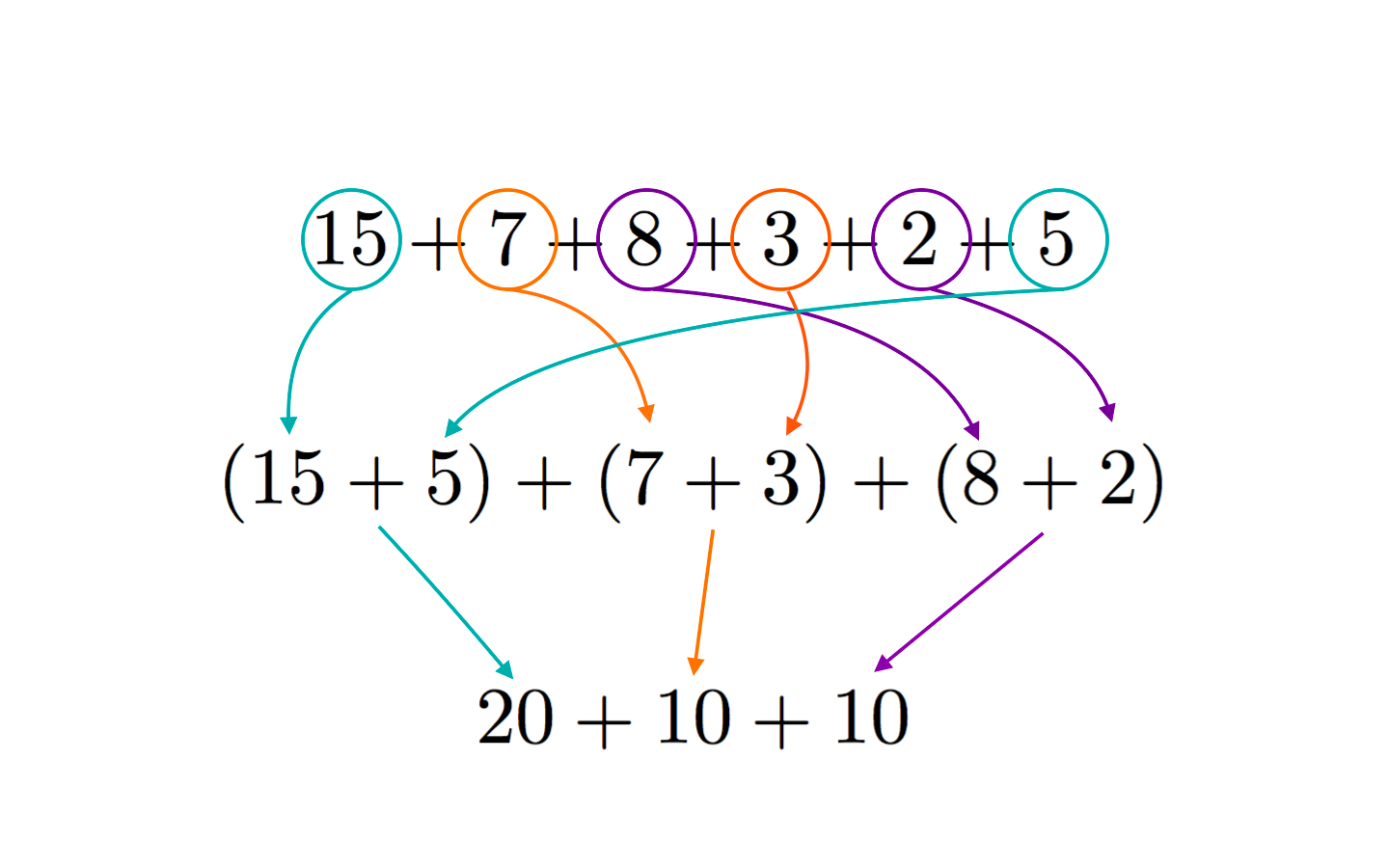Computation Tricks for Addition
Sometimes there are more clever ways to add numbers than adding them in order!In this article, we present three approaches to calculate plus advantageously.
Trick 1: Collect 10s
Because of the laws of addition, you can swap the order of the addends as you like. We take advantage of this to make addition easier for ourselves.
A sum like , can be calculated by working it off from left to right. This means:
First ad 15 and 7
Add 8 to the result
Add 3 onto the last result
Now add 2
Lastly add 5 .
But this is very time-consuming.
To save a bit of time, we first look for numbers that add up to 10 and add them first. The rest is easier, because adding 10s is especially easy!
Example
In the sum from above, you can see three pairs of numbers that add up to multiples of ten. So we just need to rearrange them.

The result of the long sum 15+7+8+3+2+5, is therefore the same as that of the sum 20+10+10. This is 40.
Trick 2: Splitting numbers
We can also split numbers to simplify an addition. To do this, we split a summand into a sum of two more "useful" numbers. Look at the following examples.
Example 1
We want to calculate . We make it easier if we write "" instead of "". We do that now and calculate the sum:
.
Example 2
Example 3
If two numbers are very similar, we can split one of them. So if we want to add 25 and 26, we can write . So in the new sum, appears twice.
Trick 3: Round up numbers
If a number is "almost round", that is, close to a 100 or 10, you can take advantage of it to simplify the addition.
Example
We want to calculate , and is very close to .
So let's think of instead of . Our sum will then be easier.